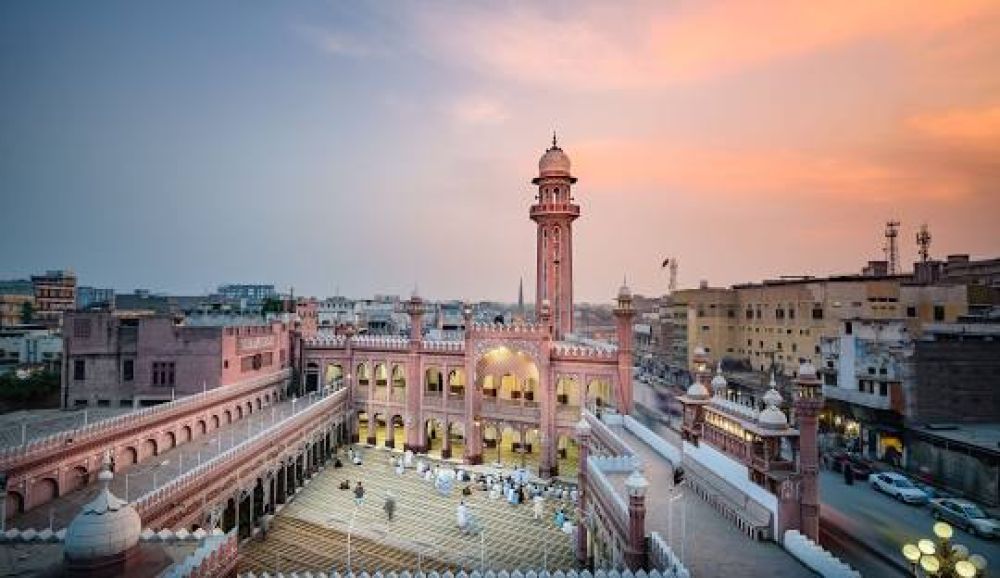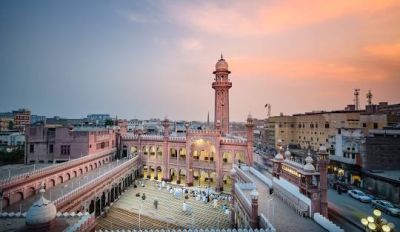

The Peshawar Museum offers a deep dive into the rich cultural heritage of the region. Established during the British rule in the early 20th century, the museum houses an extensive collection of Gandharan art, including Buddhist relics, statues, and coins from various historical periods. A visit here is a journey through the ancient history of Peshawar, showcasing artifacts that illustrate the city's significance as a center of Buddhist learning and culture. The museum itself is a fine example of Victorian-Gothic and Mughal architecture, which adds to the experience. Visitors can also learn about the Islamic and ethnographic history of the region, making it a comprehensive educational experience for history buffs and casual tourists alike.
Qissa Khwani Bazaar, translating to the 'Bazaar of the Storytellers', is a historical marketplace in Peshawar. For centuries, it was a meeting place for caravans and traders from across Central Asia. The bazaar remains a bustling area where visitors can immerse themselves in local culture, taste traditional street food, and shop for handicrafts. Walking through its narrow lanes, one can sense the vibrancy and feel the pulse of the city's trade. The aroma of Peshawari kebabs fills the air, while shopkeepers trade everything from spices and dried fruits to textiles and jewelry. It's an experience that captures the essence of Peshawar's storied past and present-day livelihood.
Namak Mandi is the go-to culinary hotspot in Peshawar for food enthusiasts. The name translates to 'Salt Market', but today it is renowned for its mouthwatering traditional barbeque, especially the famous Peshawari Chapli Kebab and Karahi. Local restaurateurs have mastered these dishes over generations, creating a flavor that is hard to replicate elsewhere. The sizzling sounds of cooking meat, coupled with the communal atmosphere of open-air restaurants, make dining here an experience not just for the taste buds but for all senses. A visit to Namak Mandi offers a chance to witness the culinary art of Peshawar and indulge in a dining adventure that highlights the indigenous spices and cooking techniques of the region.
Sunehri Masjid, known as the 'Golden Mosque', stands as a fine example of Mughal architecture with its splendid golden domes and minarets. It is situated in the heart of Peshawar's old walled city, and the mosque's brilliant façade shines brightly under the sun, catching the eye of every passerby. Visitors are welcomed by its intricate design, and the tranquility within provides a respite from the bustling city outside. The mosque, despite its historic value, remains an active place of worship, so visitors are advised to dress modestly and be respectful of worshippers and prayer times. Exploring the mosque offers a moment of reflection and a chance to appreciate the religious and architectural history of Peshawar.
Sethi Street is a narrow alley lined with the ornate havelis (mansions) of the wealthy Sethi family from the 19th century. The architecture of these historic homes is a blend of Central Asian, Persian, and local Pashtun styles, featuring beautiful wood carving and stonework. These havelis are a testament to the affluence Peshawar once had as a key commercial center on the Silk Road. Visitors to Sethi Street receive a visual treat of architectural elegance and glimpse the lifestyle of the mercantile elite from a bygone era. Some of the havelis have been restored and opened to tourists, providing a fascinating look into Peshawar's urban history and architectural diversity.
Cunningham Clock Tower, also known as Ghanta Ghar, is a colonial-era landmark located at the convergence of several roads in the city center of Peshawar. This iconic tower was built in 1900 to commemorate the Diamond Jubilee of Queen Victoria. The clock tower has since become a symbol of the city and serves as a prominent reference point for locals and tourists alike. Standing at an impressive height, it offers a picturesque setting for photography and is a charming glimpse into the history of the British presence in the region. The area around the tower is a bustling hub, often filled with lively markets and street vendors, making it a vibrant place to explore and soak in the local vibe.
Peshawar Golf Course is a lush green oasis in the heart of the city, providing a serene escape from the urban chaos. This 18-hole golf course is one of the oldest in the country and offers a challenging yet enjoyable game for golfers of all skill levels. The manicured lawns and fairways are bordered by tall trees, and the tranquil setting is ideal for a day of leisurely sport or simple relaxation. Non-golfers can enjoy the clubhouse facilities, which often include dining and social events. A visit to the Peshawar Golf Course can be a refreshing break for tourists seeking to combine some leisure time with the natural beauty of the area.
Bala Hisar Fort is one of the most striking historical landmarks in Peshawar. Its name means 'High Fort', a title that suits its commanding position overlooking the city. The fort has a storied past, having been a royal residence and a military site, reflecting the strategic importance of Peshawar in regional politics. Within its walls, visitors can explore rooms, bastions, and the fort's museum, where military memorabilia and ancient artifacts are on display. The panoramic view of Peshawar from the fort is a memorable sight, providing a unique perspective on the city's layout and surroundings. Although access to Bala Hisar Fort can be restricted due to its current use by military forces, visitors can still appreciate its external grandeur and historical significance.
Kabuli Gate, once a part of Peshawar's historic city wall, is now known for the rich tradition of storytelling that takes place near it. The ancient art of Pashto storytelling, or 'hujra', is performed by skilled storytellers who convey tales of heroism, romance, and folklore to rapt audiences. These narrators use a mix of prose, poetry, and song to bring life to their stories, which are deeply rooted in the cultural psyche of the Pashtun people. Visitors seeking an engaging cultural experience in Peshawar can join locals at the Kabuli Gate to witness this endangered art form and gain insight into the traditional oral literature of the region.
Deans Trade Center is a modern shopping and business complex in Peshawar that contrasts with the old bazaars of the city. It offers a range of shopping options from local handicrafts to international brands. This sprawling complex is a popular destination for both locals and tourists who are looking for a more contemporary shopping experience. Whether it's fashion, electronics, or homeware, Deans Trade Center provides a comfortable and secure environment for all types of shopping enthusiasts. The center often hosts various events and exhibitions, which enhances its appeal as a place to not just shop but also to experience the commercial dynamism of Peshawar.
